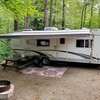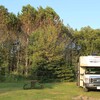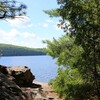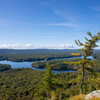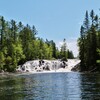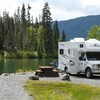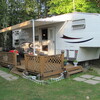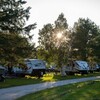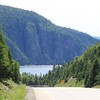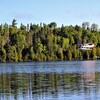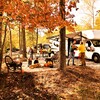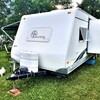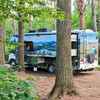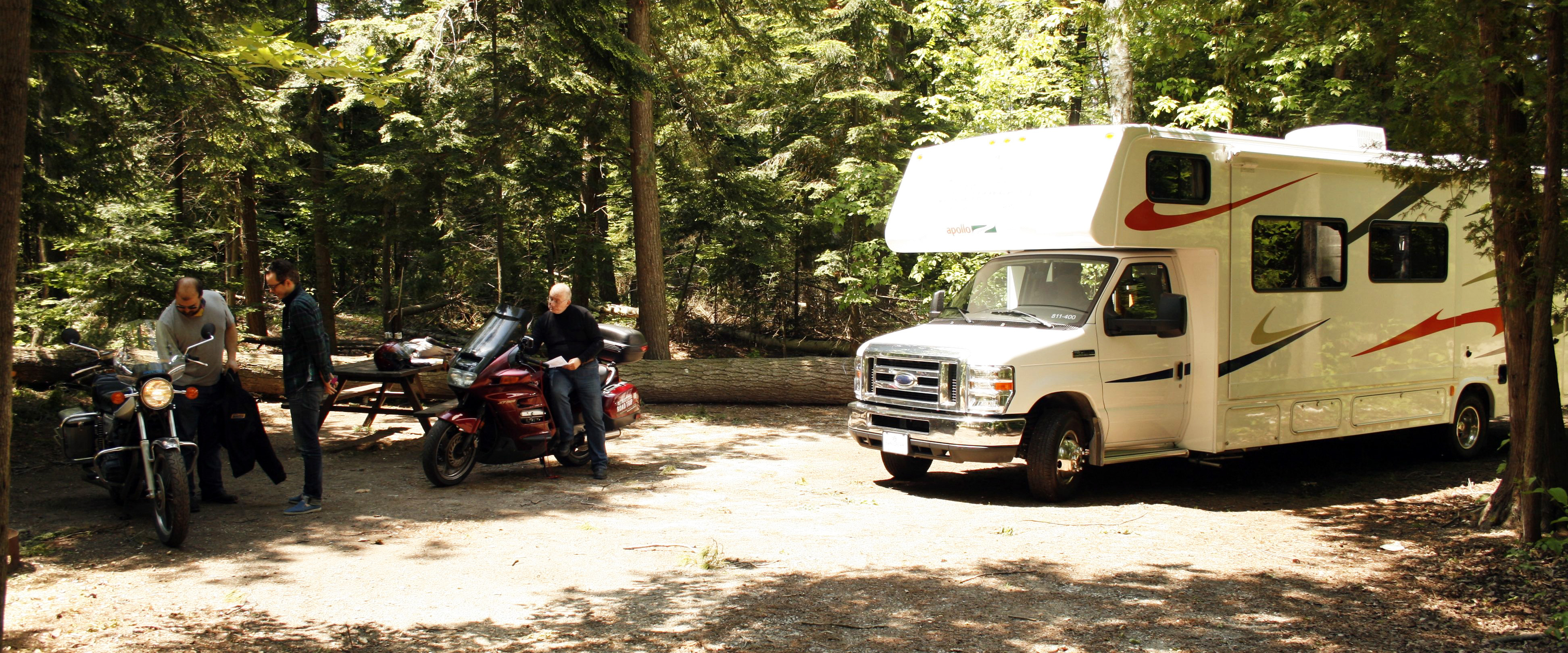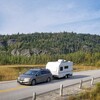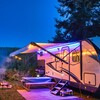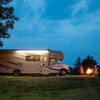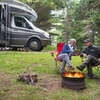
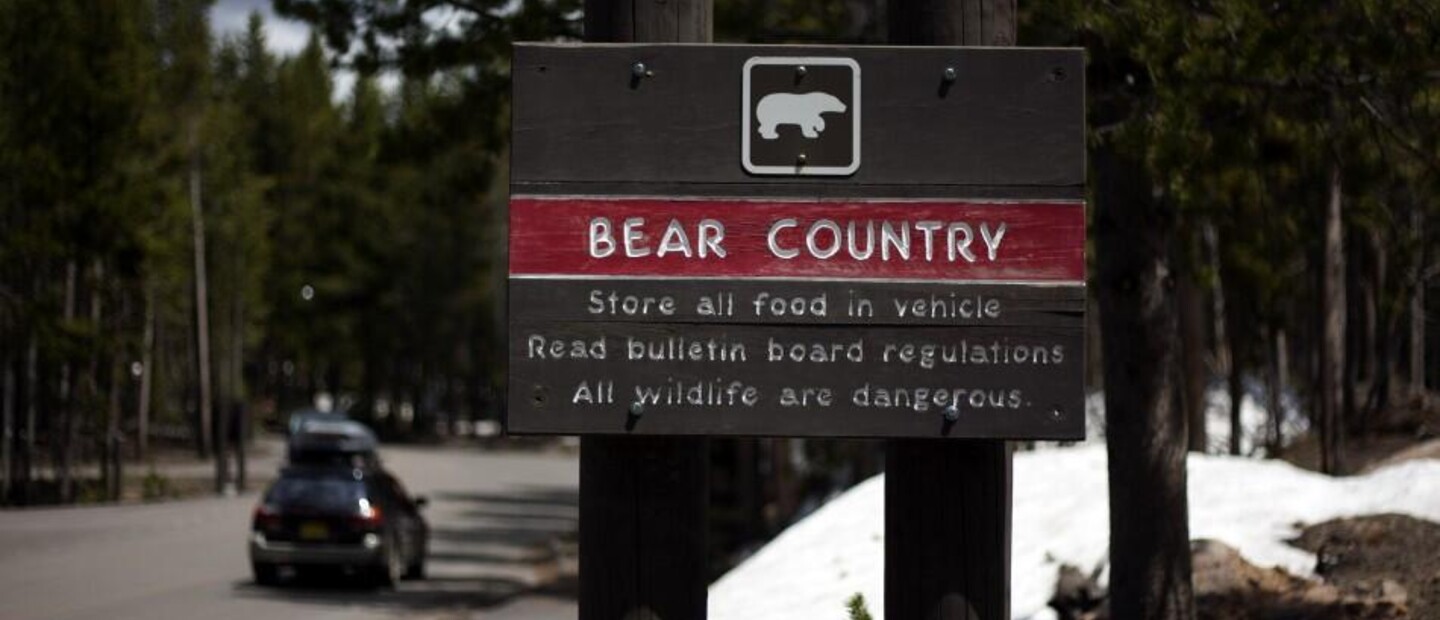
Be Bear Aware This Summer
The province of Ontario is home to the Ursus Americanus or the common black bear. Stealthy and powerful, black bears inhabit every corner of our backwoods—usually out of sight as they meander the dense North Country brush.
While humans and black bears usually co-exist in relative harmony (they're primarily vegetarians after all) it’s always a good idea to be bear aware when you’re camping and RVing this summer. Chances are if you spot one, it will have already spotted you and be on its way—but it's always a good idea to practice bear safety to reduce your chances of encountering that rare aggressive bear that may cause you some problems.
Many parks and campsites will have their own guidelines and information relating to bear safety on a local level—Algonquin Park has a Black Bear Safety handbook, for example. Generally though, here are all the things you need to know about encounters with black bears in Ontario.
4 Types of Black Bear Encounters and How to Deal with Them
Most encounters with black bears are a fleeting but thrilling opportunity to admire these powerful creatures in the wild before they lumber away. Here are the types of black bear encounters you might have in Ontario.
1. Fleeing Bear
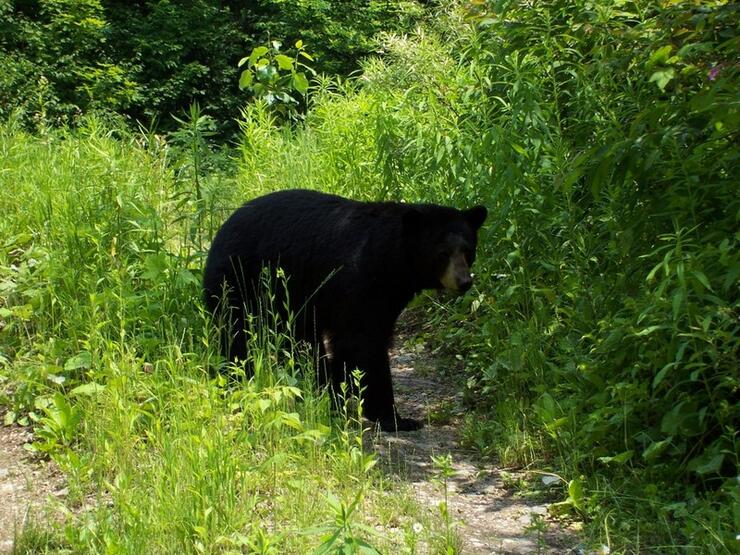
Lucky for us, by far the most common bear encounter while camping is with the fleeing bear. These bears have already sensed your presence and are making their escape.
2. Habituated Bear
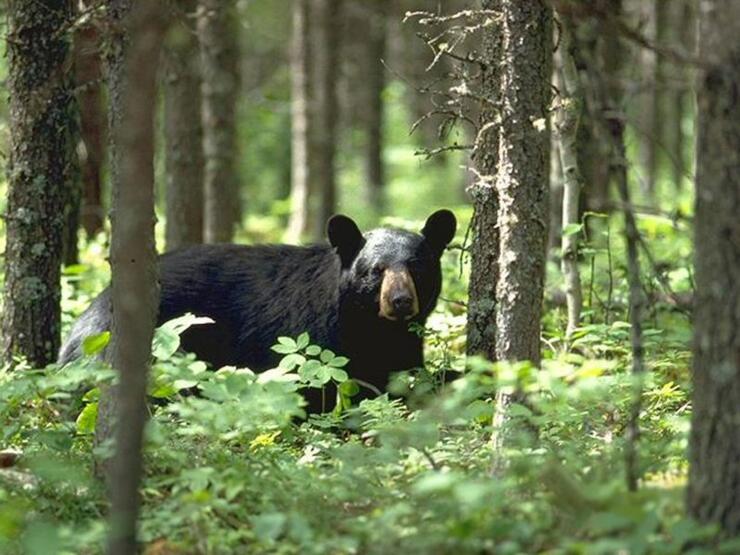
The habituated bear is used to humans and has lost its natural fear of them—likely because it’s come to associate humans with leftover or unattended food. Bears love an easy meal! This bear behaviour rarely results in confrontation. You’re likely to encounter this type of bear checking out garbage cans, sniffing around a campsite where food has been left out, or hanging out in a tree. If you encounter a bear that seems unbothered by your presence, stand your ground and make some noise to scare the bear away.
3. Defensive Bear
A defensive bear encounter also rarely ends in an attack. These encounters can be the result of hikers or campers startling the bear in the bush. It may be a mother bear with her cubs who instinctively wants to protect them. The bear may make noises that sound like huffing, moans, or clacking. It may stand on its hind legs to get a closer look at you. Or it may swat the ground with its paws. In this case, stop where you are and do not approach the bear. Make sure the animal has a clear escape route, and then slowly back away while facing the bear. Use a whistle or air horn if you have them. Do not turn and run—the bear can run faster than you can. Keep backing away until you’re out of sight. Then keep going back to the safety of your group or RV.
4. Predatory Bear
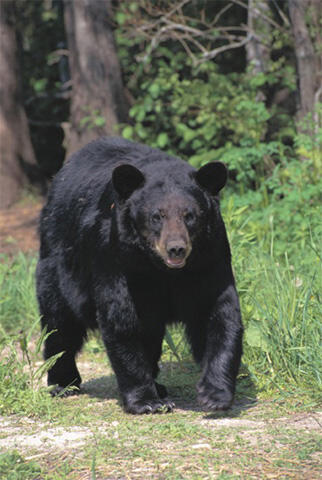
The rarest and most dangerous bear behaviour is the predatory bear. This is the one campers need to watch out for. These bears are usually silent and may walk or run toward you, stalk your campsite, or follow you while you’re hiking.
In the unlikely event you’re confronted with a lone male bear that perceives you as prey, you must stand your ground! Drop any food you’re carrying. Try to deter the bear’s approach with loud clapping and yelling, waving your hands to let them know you mean business, and do not retreat or run. If the bear continues to approach, raise your arms above your head to appear larger than you are, bang a tree with a stick, or clap two rocks together. Prepare to use your bear spray and to fight back. Most times, the bear will back down if you have convinced him that you are a formidable adversary. Predatory male bears account for nearly 90% of all fatal bear attacks in North America.
Report Your Encounter
Education is key to being bear aware which is why Ontario introduced its Bear Wise Program in the early 2000s. This province-wide bear encounter hotline is designed to track and assess black bear encounters. If you encounter a non-aggressive bear in the wild, report it by calling the toll-free Bear Wise line at 1-866-514-2327 (TTY 705-945-7641). In the unlikely event of a predatory black bear encounter, call 911.
A Cautionary Tale
On Thanksgiving weekend, 1991, campers on remote Bates Island in Algonquin Park were met by a predatory male bear who unfortunately went on the offensive. After the search party had recovered the bodies, they discovered the bear had left the camper’s food untouched. A very rare example of how dangerous predatory bear behaviour can be.
Safety Tips when RVing in Bear Country
1. Practice safe storage
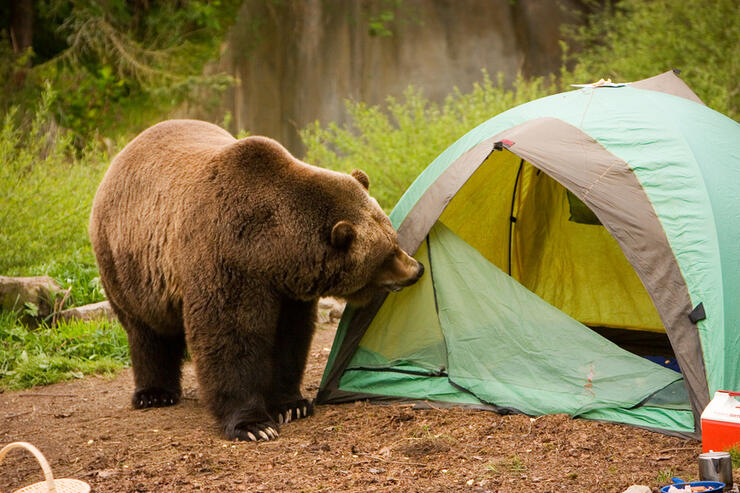
While camping and cooking in bear country, adopting scrupulously clean practices and proper food storage will lessen your chance of a negative bear encounter.
Boasting the most nasal olfactory receptors of any terrestrial animal, black bears have an exceptionally keen sense of smell. For RV campers, this means extra vigilance is required when it comes to food storage and preparation. This also applies to pet foods as well as birdseed and bait.
Many Ontario Parks now offer food storage lockers or “bear bins” onsite. Check to see if your campsite offers these bear-proof containers before you book. The best food storage location is locked away in one of these bear proof bins. It is also safe to store food in your RV, in the trunk of your car, or on the back seat of your SUV or truck. Never ever store food in your tent. Do not bring so much as a stick of gum into your tent after dark. Any sort of food or sweet-smelling morsel (including scented toiletries) could attract unwanted guests.
Food storage containers and coolers should be brought to the campfire area during meal preparation and then returned to the safe area immediately afterward. This includes any food-related garbage. Limiting the scrap food around your site will lower the chances of a bear entering your campsite in the first place.
Remember: It is possible for a bear to break into an RV if they're very determined. Keep your RV clean, clear of garbage, and keep all food in your fridge if possible.
2. Make some noise
If you’re rolling up to a campsite in your RV, the bears will hear and smell your arrival a mile away. If you’re out hiking by yourself however, it’s a great idea to make some noise while you’re walking to avoid startling a bear on the trail. Many hikers attach a bell or some other jangly item to their person, so the bear can hear them coming and stay away. Talking loudly or singing to yourself, stomping the ground, or having a small radio playing music are all great ways to warn bears of your presence.
3. Carry bear spray

Anyone who plans to camp in bear country should have bear spray with them. It is legal to carry in Canada as self-defense against aggressive bears (it is illegal to use bear spray against a person—it’s many times more powerful than regular pepper spray and is considered a dangerous weapon). Used against a predatory bear, it could very well save your life!
Hunters who also camp and RV, and are legally licensed to carry a firearm, should know that under certain very rare circumstances outlined in the Fish & Wildlife Conservation Act, residents are legally allowed to dispatch an animal perceived to be a threat to life or personal property. This is the last recourse and likely most situations would never warrant the use of a firearm. Statistically, bear spray is more effective against a predatory bear.
4. Do not climb a tree to escape a black bear
They’re excellent climbers.
5. Practice pet safety
Keep your dog on a leash when you’re in Ontario’s provincial parks. Off-leash dogs can startle bears in the bush and cause them to give chase.
6. Never under any circumstances feed a bear
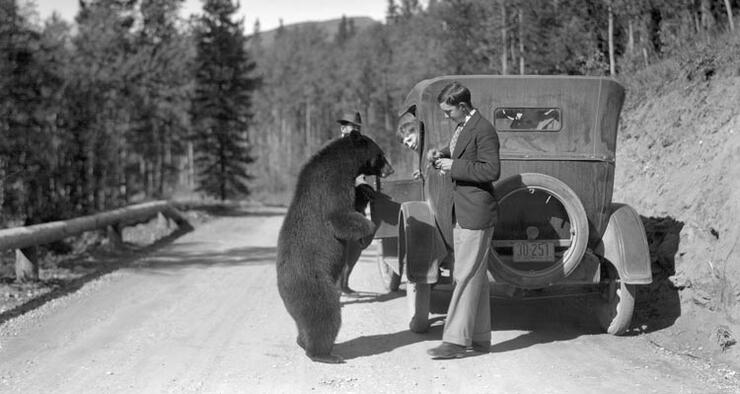
This isn't a petting zoo.
Happy Camping
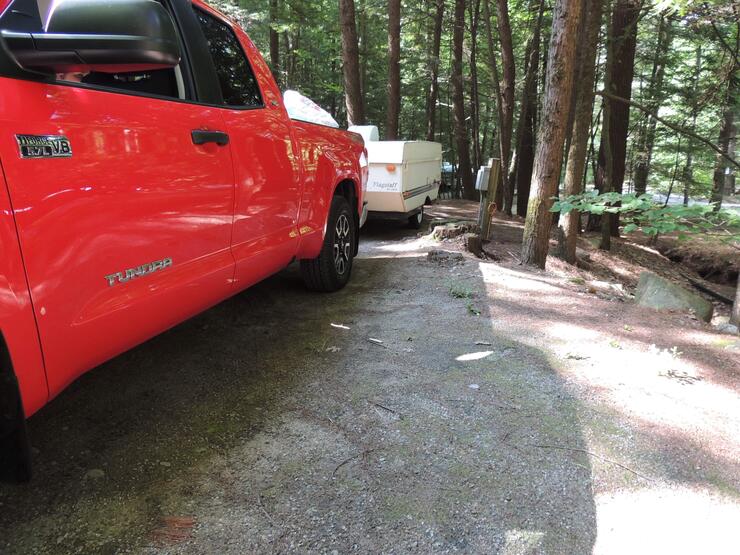
Knowledge is power when it comes to living harmoniously with Yogi, as we well know living here in Ontario. Being bear aware this summer will make your next camping adventure safer and more worry-free. With the recent purchase of a new trailer myself I’m looking forward to camping safely in many of our province’s wonderful campgrounds.
See you all in the great outdoors!
Recommended Articles

The Complete 2026 List of RV Shows in Ontario
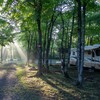
RV Camping Sites in Ontario: The Ultimate Guide

An RV Camping Guide to Ontario's Provincial Parks
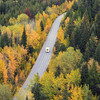
4 Essential RV Itineraries From Toronto

5 Tips on How to Go Full Time Remote Work With Your RV
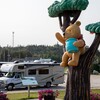
RV Summer School: An Educational Road Trip That Kids Will Actually Enjoy
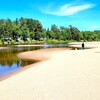
A Guide to RV Camping at Pancake Bay Provincial Park
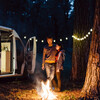
Love on the Run
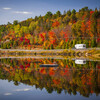
Have Your Toured Ontario's Provincial Park Nature Trail?
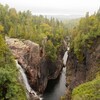
An RVer's Guide to the Voyageur Trail
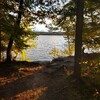
Camping and RVing in Restoule Provincial Park
